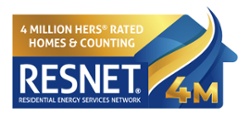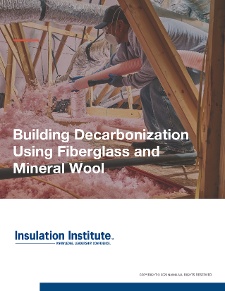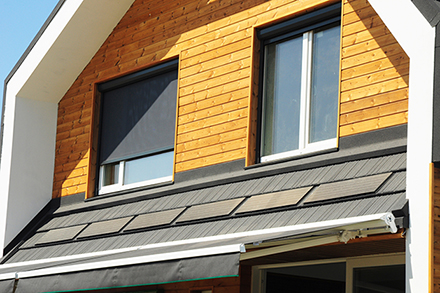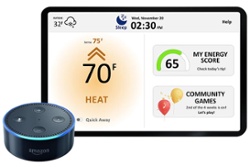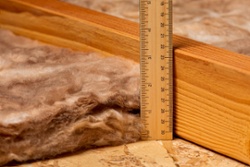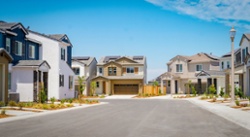Driven by the passage of the Infrastructure Investment and Jobs Act and the Inflation Reduction Act (IRA), the clean energy transition saw a record-shattering year in 2023, according to the Business Council for Sustainable Energy (BCSE) and BloombergNEF in the Sustainable Energy in America Factbook, released Wednesday. The report focuses on clean energy technologies, including renewables, electric vehicles, power grid investments, energy efficiency, and other sectors, and details the more than $303.3 billion in financing deployed in the U.S. last year on clean energy investments.
Details »Insulation Institute Blog
Would it surprise you to learn that 82 percent of companies are currently using or exploring artificial intelligence (AI) in their operations? Further, 84 percent report they are increasing their investments in data and AI.[1] That’s because AI has a near limitless capability to aid businesses and organizations in their effort to help boost energy efficiency, reduce carbon emissions, support clean energy technologies, and address climate change. Here are three specific ways AI is driving energy efficiency.
Details »State and local governments across the country are adopting Building Performance standards (BPS), and the pace of adoption for such standards will only accelerate as jurisdictions look to cut greenhouse gas emissions, boost building energy efficiency, and lower energy use. In 2023, 10 local jurisdictions across the U.S. launched BPS policies, including New Jersey, California, Colorado, Maryland, and Minnesota.
Details »Residential Energy Services Network (RESNET) has released data on the number of Home Energy Ratings Score (HERS)-rated homes in 2023. More than 360,000 homes were HERS rated last year, an increase of more than 22,000 homes compared to 2022. This accounts for 28 percent of all new homes built last year. The cumulative number of HERS-rated homes in the U.S. now tops 3.9 million, a stunning figure when you consider that just two years ago, the number of HERS homes reached 3 million.
Details »NAIMA has released a new guide that details how builders can use fiberglass and mineral wool insulation to aid in whole building decarbonization activities. “Building Decarbonization Using Fiberglass and Mineral Wool” reviews the two principal objectives of whole building decarbonization — reducing operational and embodied carbon in building materials. It also defines key terms, including:
Details »We end this year as we’ve done for the past 7 with a list of our top blog posts. If you’ve been following our blog for a few years, thank you for your loyalty. We hope we’ve shared interesting, thought-provoking topics and look forward to bringing you more content in the new year!
Details »A new report from Emu Passive, which specializes in Passive House training and consulting, looks at the ability of 12 building standards to deliver resilience, a healthy environment, and efficient buildings. The research examines how the various building standards perform based on the most common challenges for buildings. PHI Passive House performed the best among the standards considered, but more details on the performance of each standard emerge within this research.
Details »Researchers at Purdue University this week announced the creation of a patent-pending Internet of Things (IoT) software program called MySmartE that incentives people to use energy efficiency programs offered by the government and industry. Why does that matter? The lack of residential engagement with energy efficiency programs to measurably reduce energy use is stymying efforts to decarbonize the built environment, a priority for virtually every government and industry. Early results show that gamification might just do the trick.
Details »It’s no secret that well-trained insulation installers are more likely to deliver high-quality work leading to builder and homeowner satisfaction. And though the job of insulation installer seems pretty straightforward, if you ask anyone who has been in the business of evaluating insulation installation jobs, they’ll tell you that top-quality jobs are not always commonplace. That is why training is so important for insulation contractors – even those who have had experience as installers.
Details »One of the dirty little secrets of modern home building is that some high-performance building programs allow home sampling or assigning all homes within a development the same performance characteristics or scoring as a reference home. The implementation of sampling was always challenging to monitor and assess. The implied promise for each home built to a specific high-performance certification target (i.e., HERS-rated, ENERGY STAR, Earth Craft, and others) is that it was inspected individually by a trained and certified energy performance professional. Of course, all homes, not just those built to the requirements of a home performance certification program, should be inspected. Still, these inspections are crucial to ensure quality and performance for buyers paying a performance premium.
Details »